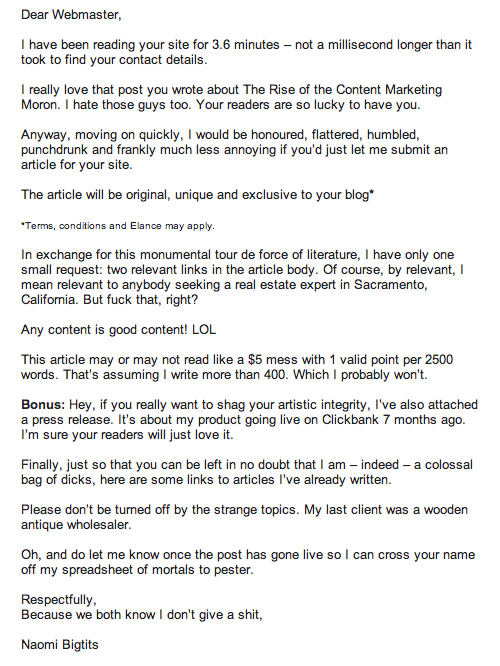These 5 Moonlighting Tips Will Rescue Your Sanity
The fastest way to change career is to quit one job and start another. If you intend to work for yourself – and have no prior experience – this path is also stupendously reckless.
The smartest way is to moonlight.
Moonlighting — v. The act of balancing one job on top of another, often in the dirtiest recess of the night while mere mortals are sleeping.
Many Internet Marketers grow in to their jobs by slowly increasing their online earnings until they can afford to work without a secured pay cheque. Another great number of Internet Marketers are looking for jobs having misjudged when that should be.
For most of us who have been lucky enough to make it online, the ‘dream job’ is preceded by at least 6 months of the purest Hell balancing full-time employment.
Are you moonlighting to change career? Are you juggling multiple jobs in the hope that you’ll one day have none? Maybe you’re hunting for that enigma… the ‘residual passive income’?
Let me give you a hint: The typical search for ‘residual passive income’ ends in a realisation that ‘passive’ is code name for the Internet Marketer that managed to get to sleep. Most of us work hard, even when we’re ahead.
Here are some tips for moonlighting and staying sane. Each is easier said than done.
Learn to counter ‘ego depletion’
Did you know that your self-control and willpower are exhaustible commodities?
When you are forced to perform a task that requires effort – cognitive or emotional – you are far less likely to be able to maintain the same level of self-control when the next challenge arrives.
The psychologist Roy Baumeister is well known for his experiments in this field.

Roy Bauermeister: One of the leading authorities on willpower.
In one of his studies, test subjects were asked to watch an emotionally charged film while making a conscious effort not to react to the footage. They were then asked to take part in a test of physical endurance – grasping a dynamometer for as long as they could manage.
The people who had watched the film and exerted self-control in managing their reactions gave in long before the people who had not seen the film.
They were ‘ego depleted’. Their reserves of willpower had been reduced.
Now imagine the willpower you are forced to exert on a daily basis by going to work.
There’s the morning commute, the meetings that drag, the water cooler bitching, and – of course – that need to bite your tongue and avoid slapping a boss on the way out.
Every day, you go to work and exhaust your willpower to the point where you get home and find your ability to resist temptation severely diminished.
The more unhappy you are at work, the greater the demands on your self-control throughout the day. It’s a cruel cycle. Those who detest their day jobs with a burning passion are more likely to find themselves instinctively surfing to Facebook or switching on the television when they complete Task A (the 9-5). They just don’t have enough self-control in the tank to manage Task B.
So how can a moonlighter conquer ego depletion?
A new study by Baumeister shows that people can replenish their levels of self-control with a positive mood stimulus. Test subjects who were shown short bursts of stand-up comedy from Robin Williams and Eddie Murphy were able to restore their ability to self-control and perform better in subsequent tasks.
We have a long way to go before we truly understand how to reverse ego depletion, and especially how Robin Williams qualifies as a stand-up comedian. But it would seem that distraction in the form of laughter – and the endorphins it releases – is as good a start as any.
Baumeister best describes willpower as a mental muscle, one that must be trained if you wish to get the best out of yourself. He suggests carefully planned routines, a good night’s sleep and a slow-burning diet as important exercises for our willpower.
Failing that, recent tests have shown that a shot of glucose is the closest thing to an instant willpower pick-me-up.
My suggestion?
When you get home from a hard day at the office, don’t even think about moonlighting. Take an hour’s break. Enjoy dinner with your family.
Eat slowly away from the computer. Watch whatever makes your guts burst with laughter. In my case, I’ll take some Karl Pilkington.

Most of us know how it feels to reach the end of the night with tasks still to finish and a rapidly deteriorating focus. It’s easy to beat yourself up. What you must realise is that in all likelihood, you already have.
Find ways to alleviate the levels of stress earlier in the day
This ties in quite appropriately with ego depletion.
Very few people realise that to moonlight successfully, you will need to work twice as hard in your day job.
When I was juggling two jobs, I would pose a challenge, “How can I detach myself emotionally from this office? How can I work more efficiently? How can I keep more in the tank for later?”
The answer was simply to let it go. Accept your job and the many arseholes that come with it (I was lucky, I only had the one)
It pays not to rise to the trivial complaints that infest lunch time. People bitch about their jobs because they are addicts to misery and the satisfaction that it brings. Your best ally is the ability to disconnect and simply not give a flying turd.
The sooner you realise that there is always going to be something to complain about, the faster you can unravel emotionally from the negativity that is out of your control.
Remember: By getting stressed, you are eating in to your own capacity to perform two jobs. Enjoy the day job as best you can. It’s your safety net. Not your future.
Work to a schedule but remember to schedule rest.
I can’t think of a faster ticket to the loonie bin than strict adherence to a schedule that neglects your need for sleep, or family, or friends.
Most moonlighters relish in repeating this old chestnut…
Entrepreneurship is living a few years of your life how most people won’t, to spend the rest of your life how most people can’t.
It’s touching, isn’t it?
Until you bump in to the average moonlighter at eight o’clock in the morning. Eyes bulging, neck ticking, a mouthful of venom for any bastard that suggests it’s not a good look.
This guy moonlights:

Moonlighting King
This savage hasn’t stopped since 1986:

Moonlighting Veteran
I’ve grown a little wiser and learnt to appreciate that working balls to the walls is a poisonous trait of our industry. The ‘grind’ has become quasi-slang for “One day they’ll be grinding my carcass off this desk.”
Dedication to work is admirable. A heart attack before 50 is just sad.
You should have at least one full day where work is forgotten. And I’m sure your wife would enjoy one full night, too.
For every notepad I’ve wasted projecting financial figures in to the future, I’ve yet to see the day where realising any of them felt like I’d arrived somewhere.
To steal a quote from my favourite TV show…
“A life, Jimmy… you know what that is? It’s the shit that happens while you’re waiting for moments that never come.”

Lester Freamon and Jimmy McNulty in The Wire. Watch it.
Track your progress in quarters
Some people prefer to setup a yearly review of their progress. I find the idea self-defeating. It gives the average healthy British male only 81 opportunities to pat himself on the back, of which the seminal years he’s likely to be found laying drunkenly in a gutter.
Some people prefer to use monthly reviews. As an affiliate marketer, I find comparing 30 day profits to be anything but an accurate depiction of how hard I’ve worked.
And some maniacs prefer to review daily. They grow old fast.
I, personally, like to review my progress in quarters. You can achieve a lot in 3 months, and can also confirm in good faith when you’ve achieved nothing. Better yet, you can tell your lavish spending missus that you’re ‘in recession’ before it’s too late.
Either way, a year juggling two jobs for zero progress is a poor transaction by anybody’s standards. And yet there’s always the royal optimist shouting from tree tops, “2013 is definitely gonna be my year!”
Bullshit. So was 2012 until she left you in the dust.
Subject your moonlit earnings to the same scrutiny as a public company is bound to by law. Imagine you are explaining your progress to an invisible investor, the bathroom mirror.
Write a report and track what has gone right versus what has gone wrong.
What are the risks for the next quarter? What are the opportunities?
While I’m a realist who sees the pitfalls in everlasting growth, your quarterly profits should be heading in an upward direction for most of the first couple of years.
If you started with nothing and you still have nothing, the omens are not good. Perhaps delivering papers is more your realm.
Understand short term cash vs. long term assets
I started this post by bashing the popular interpretation of ‘residual passive income’, I’m going to end it by offering some hope.
While the dream of working hard for period X to do nothing for period Y is most certainly flawed, the idea of thinking long term rather than ‘servicing hours’ is a good one.
Internet Marketers tend to veer in one of two directions.
Build websites, applications and products in the hope that they’ll one day be worth money.
- Use sites like Elance, Guru and oDesk to service clients and make money by the hour – or by the project.
It shouldn’t take a genius to look at those trajectories and see:
Which strategy could result in a higher income in the future, with a greater sense of fulfillment.
Which strategy is likely to solve short-term cash flow issues, i.e paying the water bill.
If you are moonlighting to raise extra cash for short-term monetary needs, throw your skills at servicing clients. It’s the easiest way to raise emergency funds. You don’t need to think big.
If you are moonlighting because an entrepreneurial flame burns inside you, the fastest way to screw yourself over is to forget about value creation and steer towards money creation. Trust me. It works nearly every time.
Note: Affiliate marketers, this applies to us now more than ever.
If you’ve decided to spend the deathly hours working on projects that have no short-term monetary gain, you should never be thinking small in scale.
To quote yet another great ‘Mad Man’:
“When you reach for the stars, you may not quite get one, but you won’t come up with a handful of mud either.”
– Leo Burnett
I wish I could come up with a suggestion more apt for Internet Marketers, but there isn’t one.
Recommended This Week
I’ve just recovered from an awesome weekend in Amsterdam at the Adsimilis Meetup. If you didn’t go, you missed out. It was great to meet everybody. Make sure you join Adsimilis and sign up for the next one. I’ll be cruising for a corporate bruising at London Adtech this week. Hope to see some of you there.




Robert - cool site, but holy crap, it hurts my eyes!